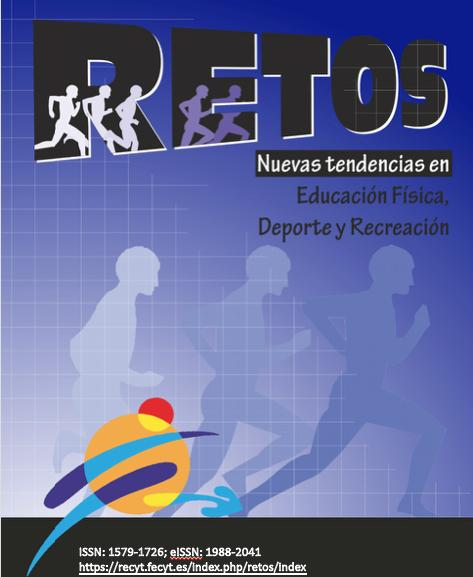Smart Operations in Sports Management: Transforming Physical-Sports Culture in the Society 5.0 Era
DOI:
https://doi.org/10.47197/retos.v68.113607Keywords:
Sports management, Society 5.0, Smart operations, Data analytics, Digital transformation, Sustainability in sportsAbstract
Introduction: Society 5.0 emphasizes a human-centered approach leveraging AI, IoT, and big data for sustainability, inclusivity, and innovation. Sports management, traditionally reliant on manual methods and limited data, now adopts data-driven technologies to enhance decision-making, operational efficiency, and inclusivity in sports culture. Objectives: The study aims to,
- Investigate how data-driven technologies improve sports management efficiency.
- Identify trends transforming physical sports culture to foster inclusivity and societal well-being.Methodology: A mixed-methods approach was used, combining surveys, interviews, and statistical analyses (e.g., regression and ANOVA). Key performance indicators included operational efficiency, fan engagement, athlete performance, and inclusivity.
Results: Data analytics significantly improved sports management efficiency (R² = 1) by enhancing decision-making, fan engagement, and athlete performance. Targeted fan experiences increased satisfaction and inclusivity, while technology integration promoted sustainability.
Discussion: The findings highlight the transformative potential of data-driven strategies. Enhanced operational outcomes, personalized fan engagement, and improved athletic performance underline the growing role of AI and IoT in modern sports management.
Conclusion: Data analytics is reshaping sports management by boosting efficiency, inclusivity, and sustainability. Policymakers and industry stakeholders must prioritize data-driven technologies, capacity-building, and ethical standards to unlock the full potential of these advancements.
References
Aijun Liu, R. P. (2023). Hybrid design for sports data visualization using AI and big data analytics. Com-plex & Intelligent Systems, 9, 2969–2980. https://doi.org/https://doi.org/10.1007/s40747-021-00557-w
Aljawharah A. Alnaser, M. M. (2024). AI-Powered Digital Twins and Internet of Things for Smart Cities and Sustainable Building Environment. Applied Sciences MDPI, 14(24). https://doi.org/https://doi.org/10.3390/app142412056
Blond, A. (27 de Nov de 2024). Smart Fan Engagement in Sports: How AI is Reshaping the Spectator’s Experience. Requestum. https://requestum.com/blog/ai-for-fan-engagement-in-sports
Carla L Dellaserra, Y. G. (2014). Use of integrated technology in team sports: a review of opportunities, challenges, and future directions for athletes. J Strength Cond Res, 28(2). https://doi.org/10.1519/JSC.0b013e3182a952fb. PMID: 24263650
Ganiyu O. Adigun, Y. A. (2024). The Intelligent Libraries: Innovation for a Sustainable Knowledge Sys-tem in the Fifth (5th) Industrial Revolution. De Gruyter Saur, 74(3), 211-223. https://doi.org/https://doi.org/10.1515/libri-2023-0111
George Wilson, O. J. (2024). The Impact of Artificial Intelligence on Digital Marketing Strategies. Pre-prints . https://doi.org/https://doi.org/10.20944/preprints202408.0276.v1
JCU Open eBooks. (s.f.). 5.6 Triangulation of Data. JCU Open eBooks. https://jcu.pressbooks.pub/intro-res-methods-health/chapter/5-6-triangulation-of-data/
Kitsios, N.-A. P. (2023). Investigating the Influence of Artificial Intelligence on Business Value in the Digital Era of Strategy: A Literature Review. Information, 14(2). https://doi.org/https://doi.org/10.3390/info14020085
Vikas Khullar, V. S. (2024). Artificial Intelligence and Society 5.0. Chapman and Hall/CRC. https://doi.org/https://doi.org/10.1201/9781003397052
Yufei Qi, S. M. (2024). Digital technologies in sports: Opportunities, challenges, and strategies for safe-guarding athlete wellbeing and competitive integrity in the digital era. Technology in Society, 77. https://doi.org/https://doi.org/10.1016/j.techsoc.2024.102496
Zhiling Chen, X. D. (2024). Utilizing AI and IoT technologies for identifying risk factors in sports. Heli-yon, 10(10). https://doi.org/https://doi.org/10.1016/j.heliyon.2024.e32477
Zhongbo Bai, X. B. (2021). Sports Big Data: Management, Analysis, Applications, and Challenges. Com-plexity, 2021(1). https://doi.org/https://doi.org/10.1155/2021/6676297
Downloads
Published
How to Cite
Issue
Section
License
Copyright (c) 2025 Tarun Kanade, Tushar Savale, Sampada Mashirkar, Harshada Parikshit Aurangabadkar, Jonathan Joseph

This work is licensed under a Creative Commons Attribution-NonCommercial-NoDerivatives 4.0 International License.
Authors who publish with this journal agree to the following terms:
- Authors retain copyright and ensure the magazine the right to be the first publication of the work as licensed under a Creative Commons Attribution License that allows others to share the work with an acknowledgment of authorship of the work and the initial publication in this magazine.
- Authors can establish separate additional agreements for non-exclusive distribution of the version of the work published in the journal (eg, to an institutional repository or publish it in a book), with an acknowledgment of its initial publication in this journal.
- Is allowed and authors are encouraged to disseminate their work electronically (eg, in institutional repositories or on their own website) prior to and during the submission process, as it can lead to productive exchanges, as well as to a subpoena more Early and more of published work (See The Effect of Open Access) (in English).
This journal provides immediate open access to its content (BOAI, http://legacy.earlham.edu/~peters/fos/boaifaq.htm#openaccess) on the principle that making research freely available to the public supports a greater global exchange of knowledge. The authors may download the papers from the journal website, or will be provided with the PDF version of the article via e-mail.


